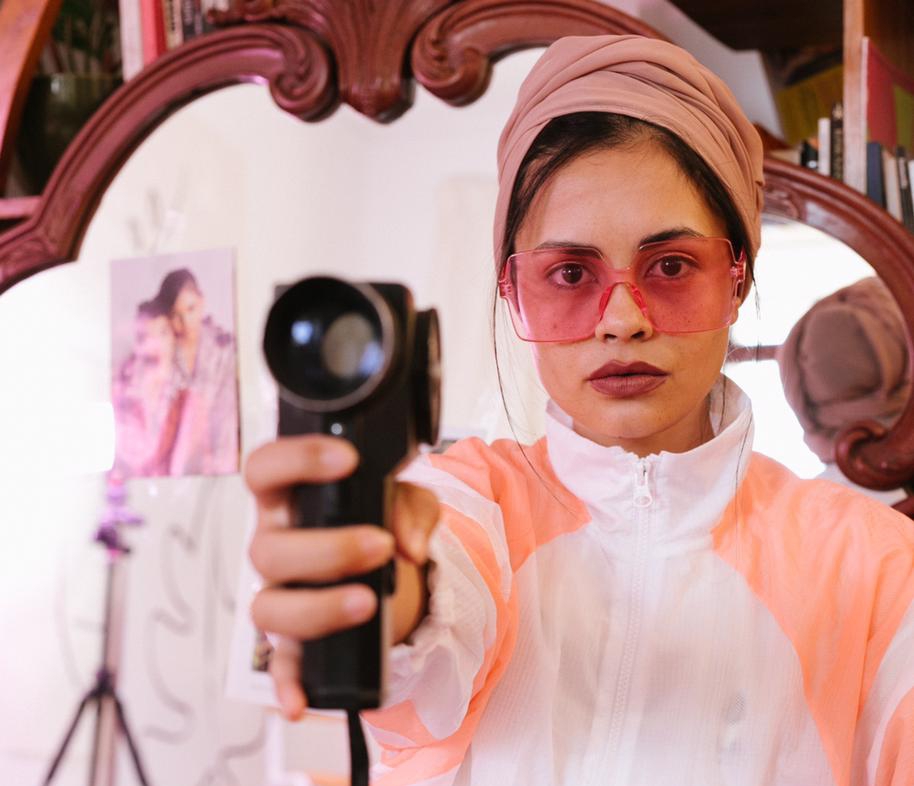Groundbreaking Workshop on AI and Technology-Facilitated Gender-Based Violence at AWiM24
Trending
Sunday May 25, 2025
Trending

Farida Benlyazid was once widely considered to be Morocco’s only female filmmaker. Her career began in the late 70s and her legacy is seminal in Morocco’s film history. Like many directors of her time, her stories were centred on the untold experiences of marginalised women. She also helped pave the way for other pioneers across different generations. But even now, few Moroccan directors are women.
From the 70s and onwards, a female director would make occasional headlines. In 1997, this was because of Fatima Jebli Ouazzani’s documentary, ”In My Father’s House”. It was a critical success that took viewers through the director’s struggles with Moroccan gender norms and familial disapproval. The film was lauded for its subject matter and story.
The theme of female liberation runs through many Moroccan films. It also parallels the defiance of Western stereotypes that define Morocco’s best postcolonial movies. Scholars have often examined how female liberation can also come from letting go of the colonial clutches on art.
One recent study In the Journal of Middle East Media examined the main gendered tropes of women in contemporary Moroccan films through the period between 2008 and 2012. Though the sample size of the selected films was limited, it noted the relationship between orientalism and portraying Arab women as victims. The characters are depicted as experiencing oppression, but they rebel against their situations without relying on the “male European saviour”.
The study noted that “Overall we found that these films do not reproduce Orientalist and colonial frames, even though they represent the main female characters as victims.”
It goes on to say that “the figures of the belly dancer, the exotic seductress, or the veiled victim in need of saving are not represented in the films.” All this is not to say that such depictions are now absent from Moroccan cinema, but it helps that they now feel outdated.
Stereotypes are being challenged in many critically-acclaimed Moroccan films. However, for the bigger picture to come into focus female directors need to get the limelight.
Scandals and screens
Moroccan directors have to be cautious when tackling controversial subjects. Some of the country’s most praised films are also its most notorious.
The film ”Much loved” (2015) told the tale of four sex workers. It caused enough outrage to culminate in a nationwide ban. The movie was directed by Nabil Ayouch and co-written with his wife Maryam Touzani. The film’s lead actress Loubna Abidar was even attacked and faced death threats after its release. Despite the backlash, the film was highly praised for its portrayal of the main female characters and its overall message.
Moroccan directors have always been drawn to stories of corruption and injustice. But female directors have a hard time getting their stories to the screen. Along with the cultural barriers for women, there’s also mass pushback from the media and government censorship to consider. Still, the few female directors that have managed career breakthroughs have produced memorable and thought-provoking works.
Directors like Laila Marrakchi challenge viewers to question some of their viewpoints and possible biases. Marock (2005) film is regularly cited as one of the country’s most controversial films. By centring on a Judeo-Islamic romance, it took on religion and the representation of Arab female sexuality and told it through a classic love story.
A hopeful future
After an eight-year hiatus, Marrakchi is set to return to directing. She is currently developing “The Sweetest”, a feature film on female Moroccan strawberry pickers facing exploitation and harassment in Spain. Moroccan cinema is also picking at pieces that post-colonialism left behind.
Historically, Arab and Muslim damsels-in-distress have been used as pawns in Hollywood to push Anti-Arab agendas. Within the past decade, Moroccan directors have had the chance to tell more stories of women’s struggles without conforming to damaging and limiting stereotypes.
Standing their ground is paying off and stories are being told in interesting contexts and with other relevant themes.
In Adam (2019), Maryam Touzani tells a story about both physical and emotional isolation. The protagonists feel isolated from society for different reasons. One character is a young runaway, pregnant and forced to leave everything behind, while the other is a woman slowly adjusting to her new life as a widow and single mother.
The film found success both locally and internationally and was shown at the Cannes Film Festival and was even submitted for an Academy award consideration.
As society shifts, cinema moves with it. Moroccan films are increasingly seeing stories that examine class, orientalism, double standards and more. These subjects have been a part of Moroccan cinema for years, but now we may be seeing women tell more of their own stories.
This article is part of the African Women in Media (AWIM) Graduate Trainee Programme in collaboration with Fojo Media Institute
We’re not gonna spam. We’ll try at least.

Copyright 2020. African Women In Media
Copyright 2020. African Women In Media
Recent Comments